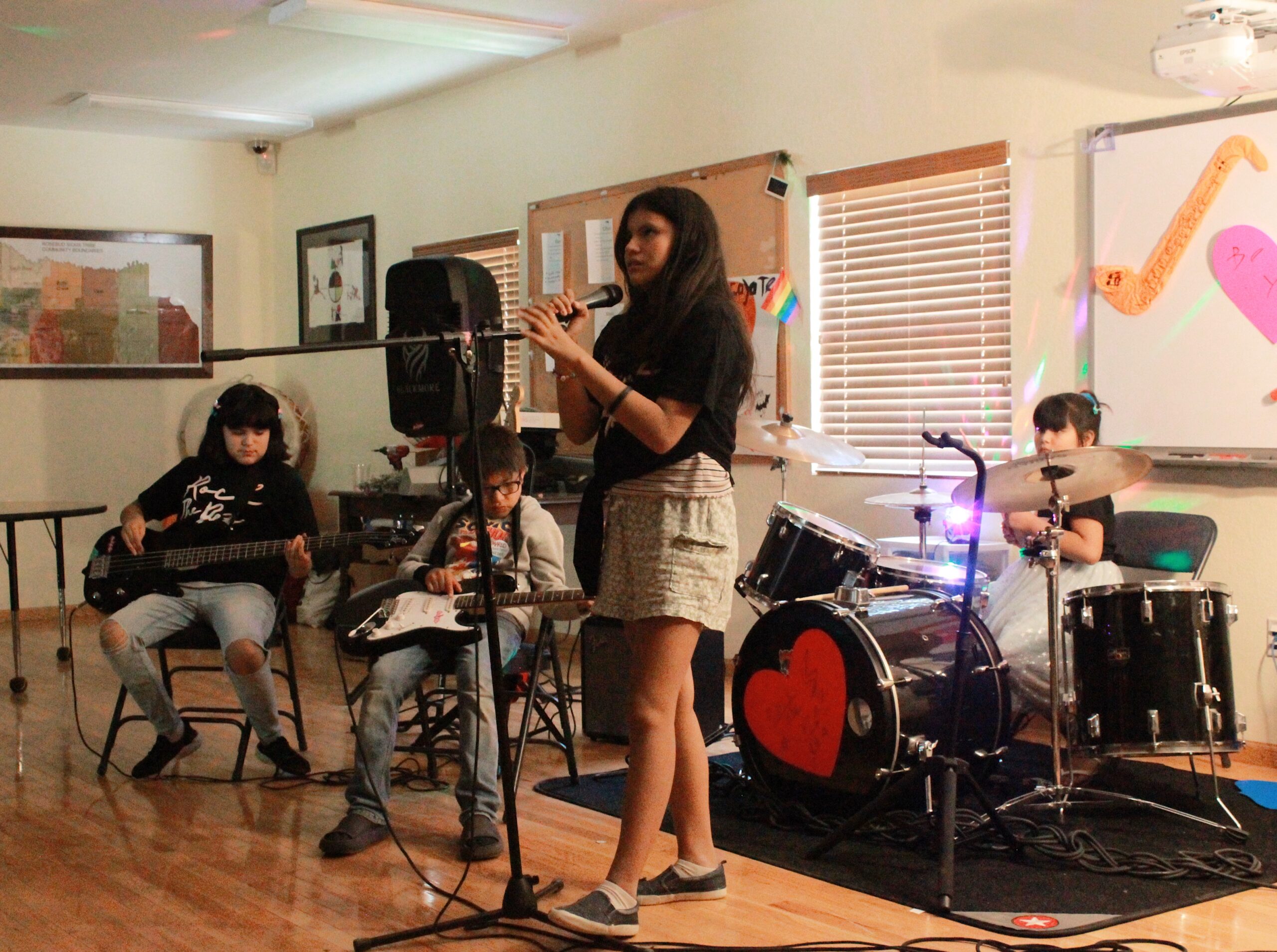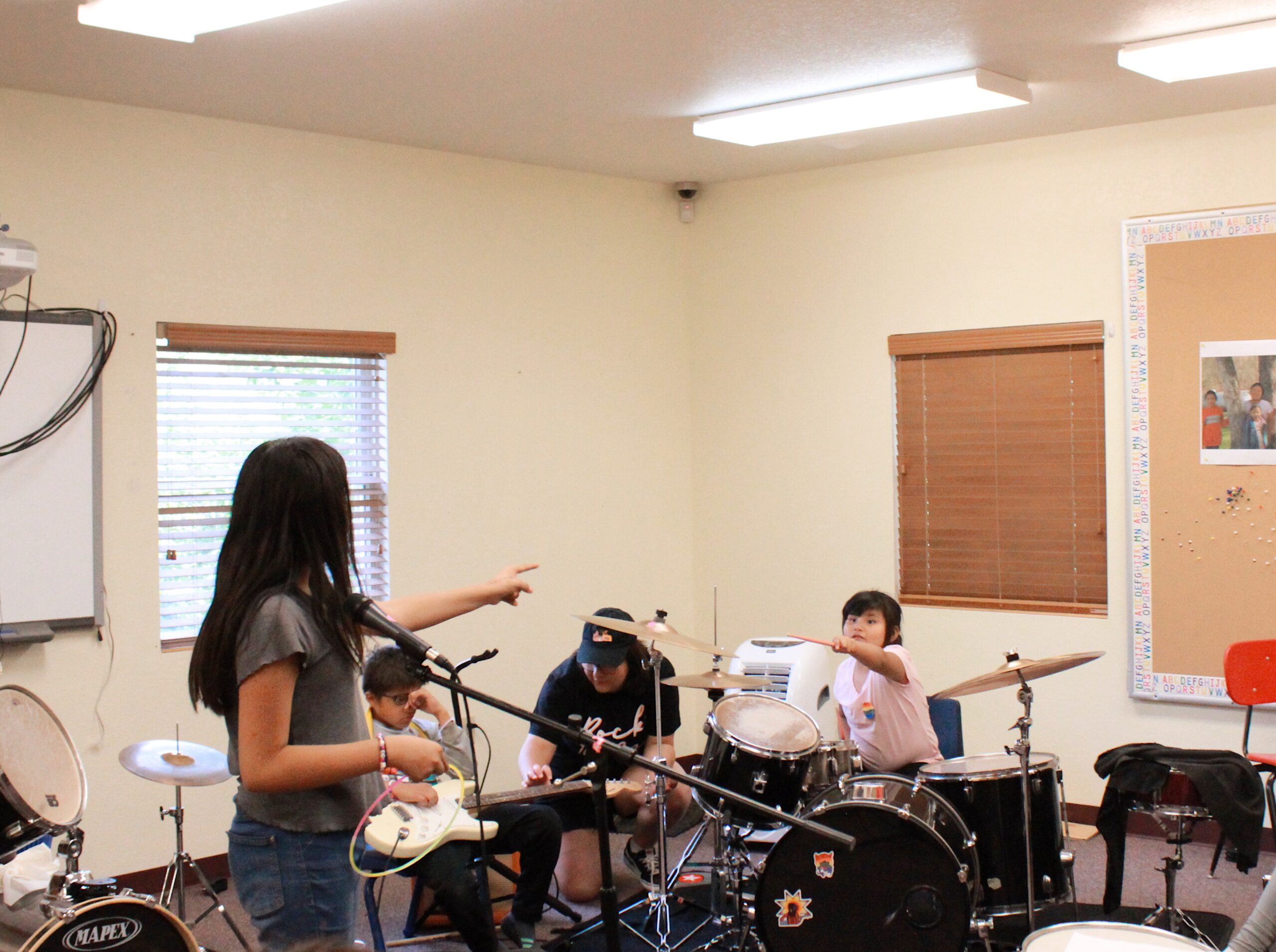Cecilia Steele, a 10-year-old member of the Rosebud Sioux Tribe, has always enjoyed listening to music and singing along. “But ever since I started playing music at Rock The Rez,” she said, “now I love playing instruments.”
In summer 2023, Steele learned to play bass guitar at Rock The Rez: a program aiming “to empower Indigenous girls, two-spirited, transgender, and gender diverse youth to build self-esteem and find their voices through unique programming.”
While the camp includes a range of activities, it centers on rocking out. “It’s about art in general,” said executive director April Matson. “Music and instruments are like the river that flows through and holds us all together for the week.”
APRIL MATSON, EXECUTIVE DIRECTOR, ROCK THE REZ“It is really important that we are creating a space that is only for girls, two-spirit, and gender diverse use, because it just creates a whole different community. We’re very safe to be silly and loud and open and creative.”
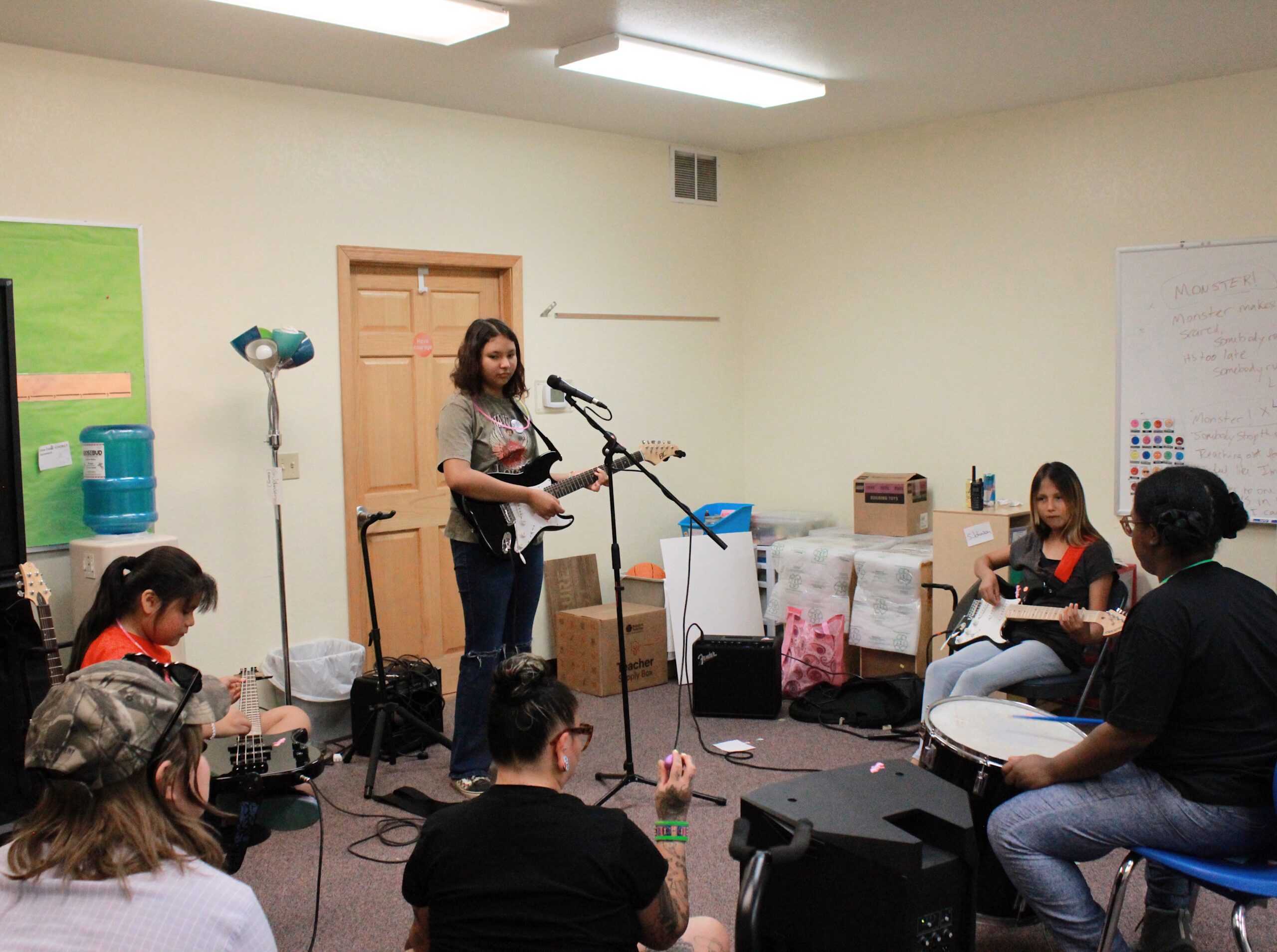
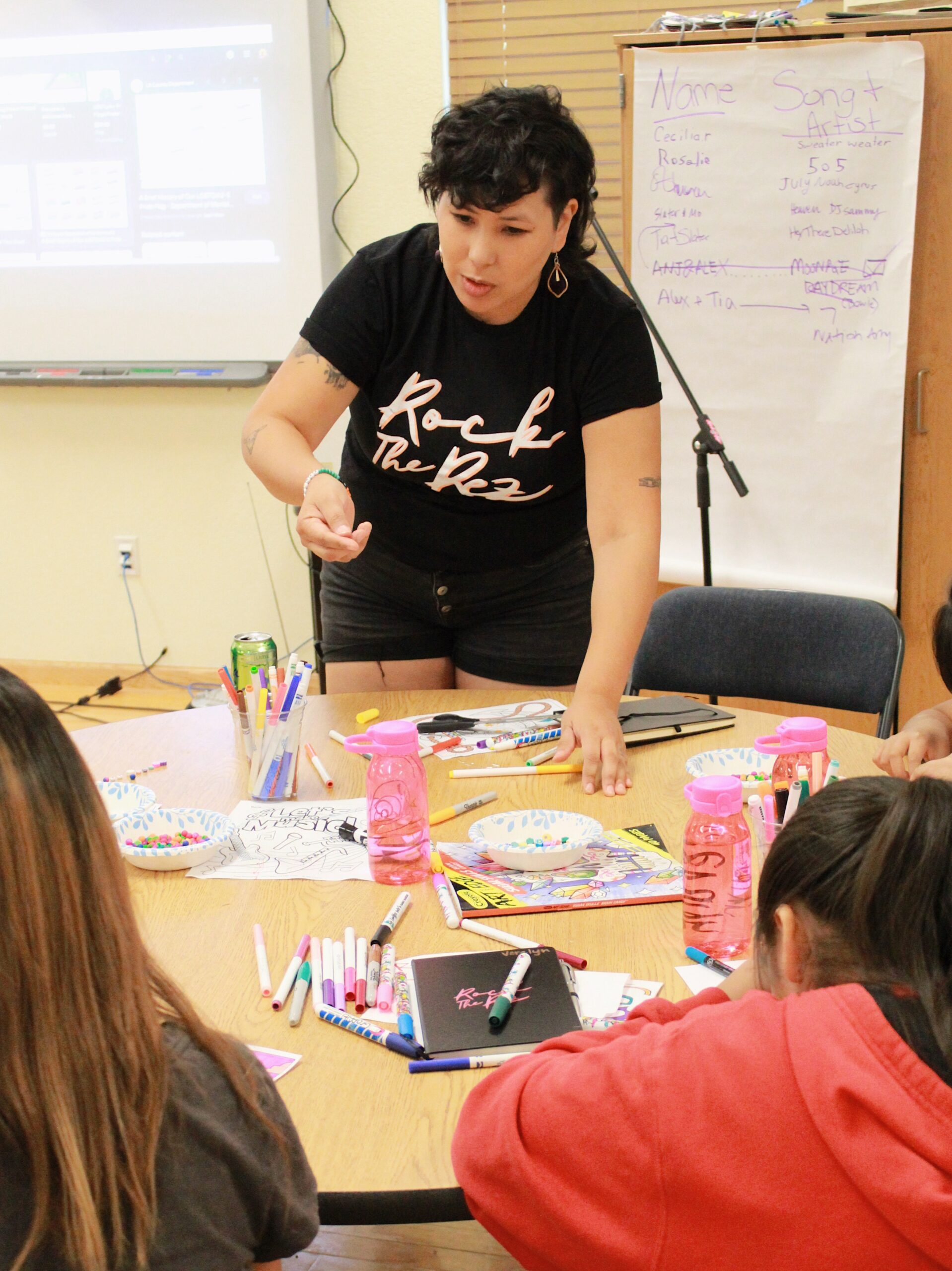
The South Dakota program currently conducts a week-long camp for Rosebud each summer and dedicates another week to the nearby Pine Ridge reservation community. It’s part of an international movement sparked in 2001 by Oregon’s Rock ‘n’ Roll Camp for Girls.
The resonance of 2023’s Barbie, a satirical film in which Ken magnanimously invites Barbie to listen while he plays guitar “at” her, demonstrated the ongoing reality that “there’s a big space for men to be very entitled to arts,” said Matson.
“It is really important that we are creating a space,” Matson continued, “that is only for girls, two-spirit, and gender diverse use, because it just creates a whole different community. We’re very safe to be silly and loud and open and creative.”
Matson, an enrolled member of the Sicangu Lakota Oyate and the Athabaskan Tribe of Alaska who identifies as two-spirit, hopes that Rock The Rez will lead to broader Indigenous representation on music stages.
“What I want to see is not only these Indigenous youth in Pine Ridge and Rosebud forming bands and playing for their community,” said Matson, “but also going outside of their community to Rapid City and Sioux Falls and Minnesota and Omaha and performing.”
“It was pretty challenging for me” at first, said Steele about learning bass. “But once they started teaching me, I got used to it and they started teaching me new techniques.”
By the end of the camp, Steele was performing live — and on camera. Her family came to watch her play, she said, and “I quite enjoyed it! I thought I was going to be on every social media app because there [were] all kinds of people recording me, so I just played my best and then I had fun.”
The program was founded in 2016 as Girls Rock Pine Ridge, taking the name Rock The Rez in 2020 “in an effort to be more inclusive of our LGBTQIA2+ community.” Matson has been involved since 2019, initially participating as a volunteer.
“I just had the best, most genuine experience with the other volunteers,” said Matson. “Being able to interact with the campers on a level that is very beginner, which is where I was at with the instruments that we were teaching, and then seeing them create a whole song just from those rudimentary skills was incredible.”
The program also ensures that campers connect with musical role models within their own communities. “We try to invite one local Indigenous band per day of camp for a lunchtime performer,” explained Matson. “The campers are always really excited to meet them, and then you say, ‘This person lives here, lives in this place where you live.’”
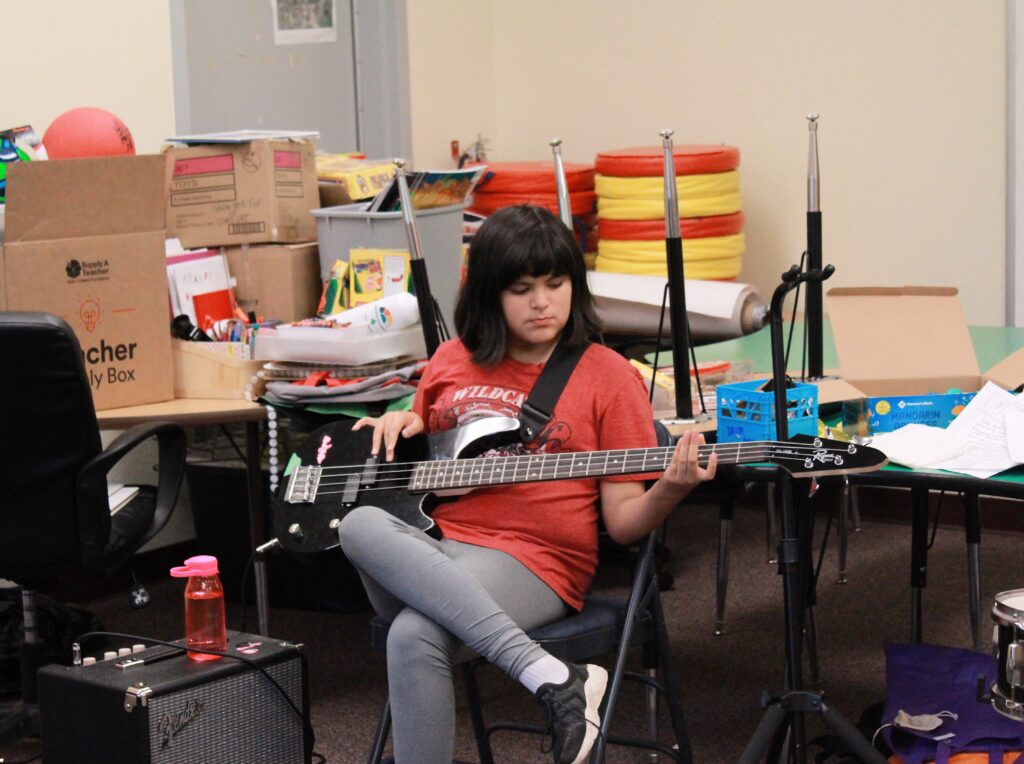
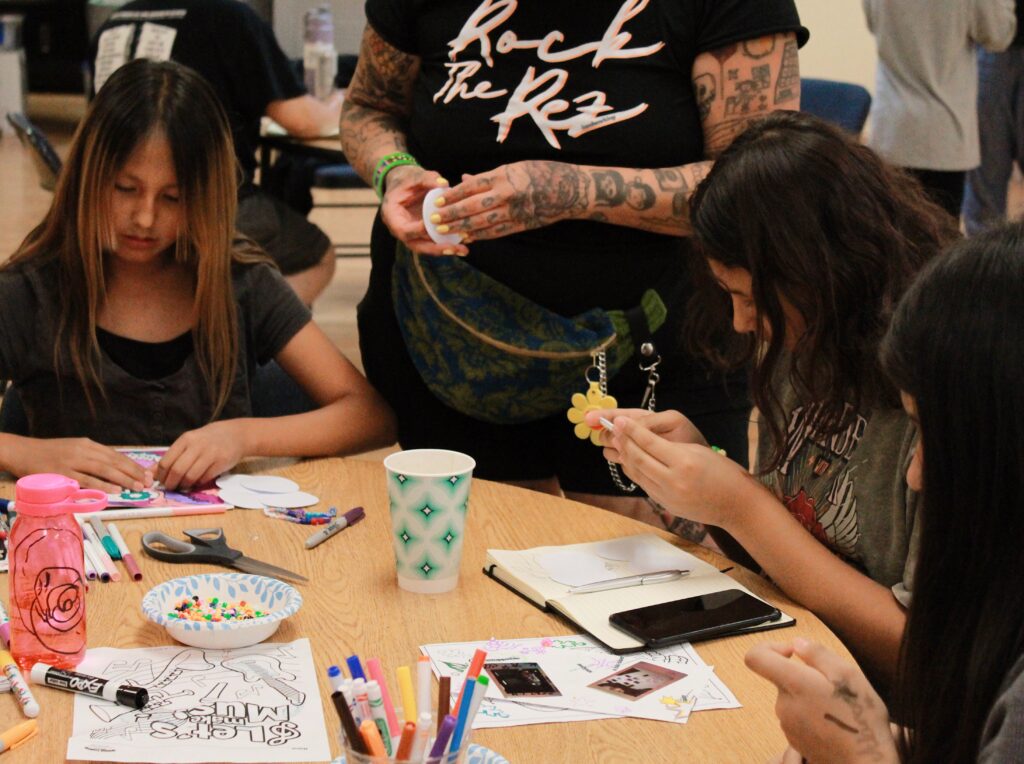
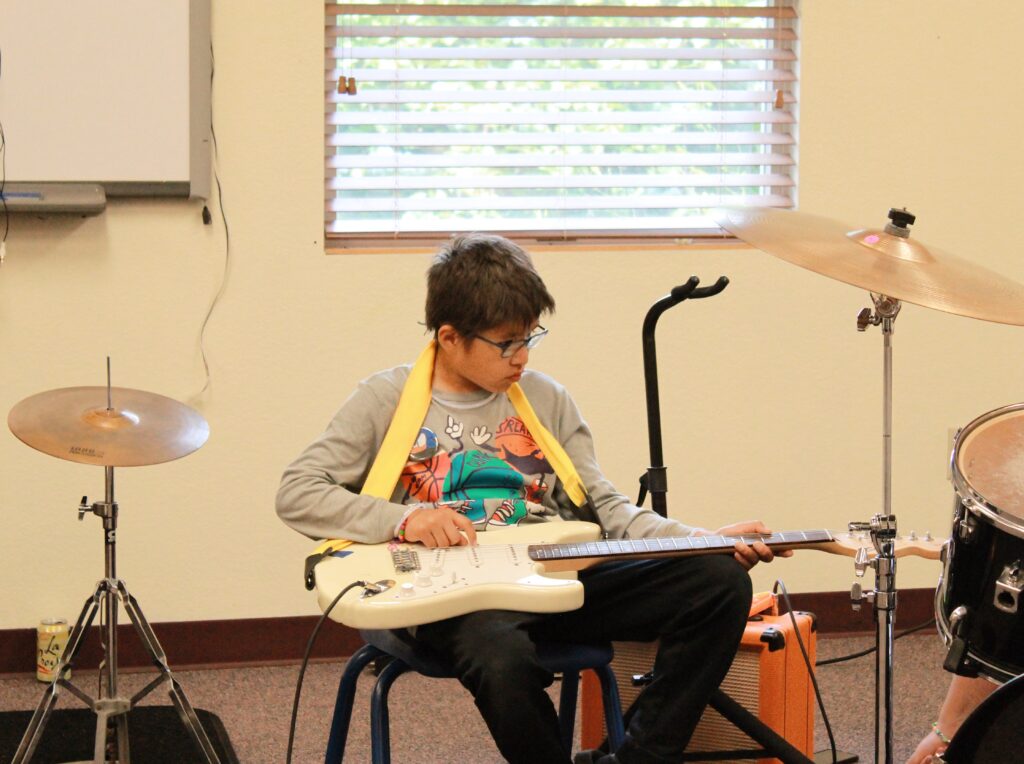
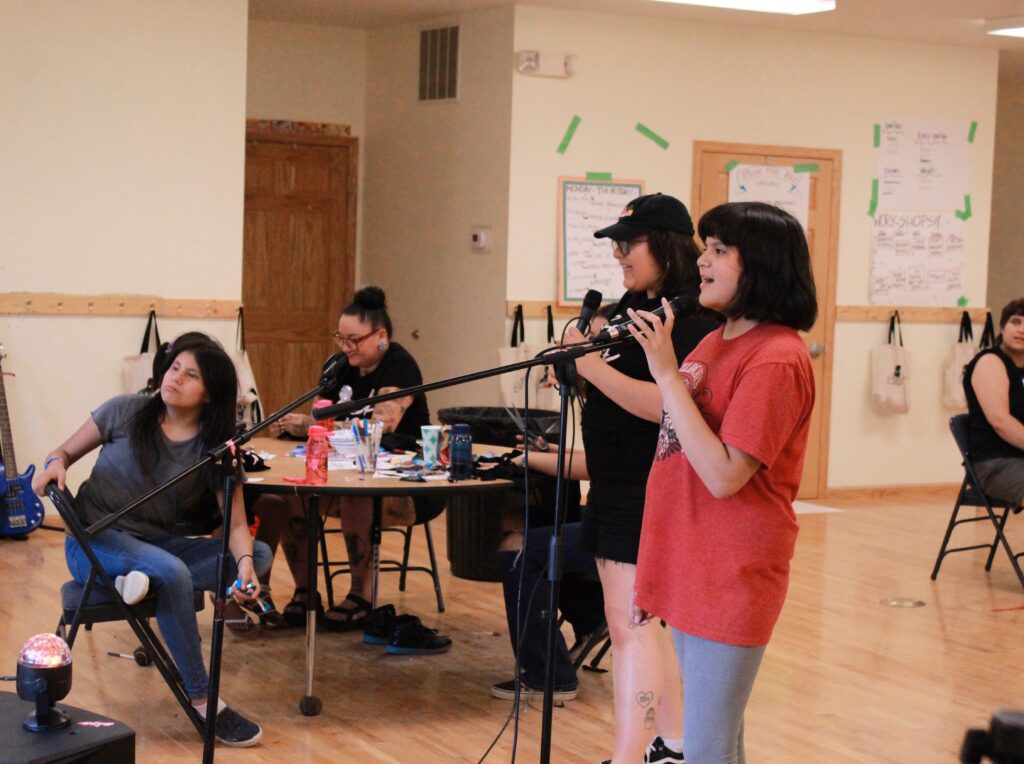
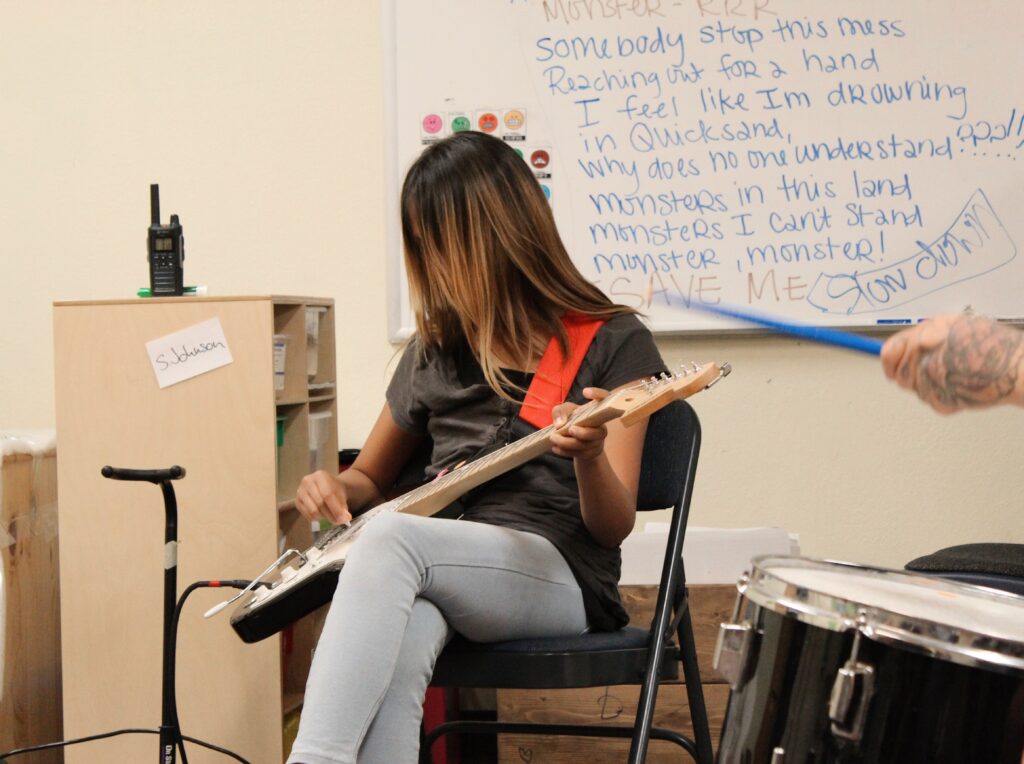
“We want everyone to feel like they have a safe space to create, [to feel] like their voice is heard. We want them to feel really proud of who they are,” Rock The Rez resource coordinator Maureen O’Brien told the Cave Collective in 2021. “We want to make sure that they are like, ‘We see representation, so that’s permission.’”
Steele said it was “real fun to watch” the experienced musicians at camp. “They were really nice and supportive of my music,” she said about the adults she encountered. “They’re really kind.”
She ended up deciding to spend as much time at camp as possible. “I was planning to go for a couple of days, but the first day I went there I loved it,” said Steele. “So I went there all week!”
Staff are constantly working to build awareness of their free program, a nonprofit enterprise funded largely by grants and donations. Despite repeated pitches to local media, in past years the program has received little news coverage.
“I heard, one year, ‘We don’t know what the story is here,’” recalled Matson. “I’m like, are you kidding? This is amazing! Look at these kids. They’re awesome.”
